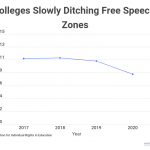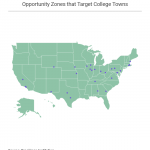
Did You Know? The Decline of Free Speech Zones
The term “free speech zone” can be misleading. While the name implies a policy that promotes free expression, free speech zones do the opposite. They confine political demonstrations to a … Continue reading “Did You Know? The Decline of Free Speech Zones”



